- Arakan residents call for air raid warning systems amid surge in junta airstrikes
- Arakan’s Breathing Space (or) Mizoram–Arakan Trade and Business
- Death toll rises to 18 after junta airstrike on Ponnagyun village market
- Regime arrests dozens of Muslims in Sittwe over alleged Arakan Army links
- Over 200 IDPs in Ponnagyun struggle without shelter, food aid
Too many IDPs, too few toilets for some displacement camps hard-hit by cyclone
At the Zedi Pyin IDP camp in Rathedaung Township, which houses about 320 people, 45 out of 48 toilets were damaged by the storm, and IDPs only have three latrines to use currently.
14 Jul 2023
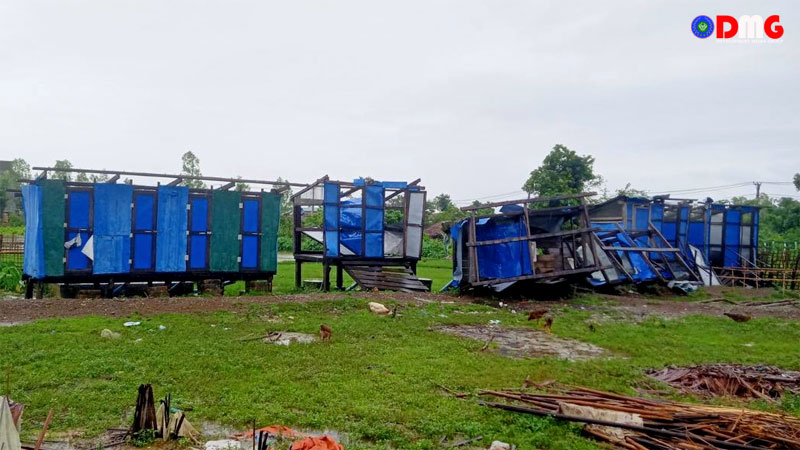
DMG Newsroom
14 July 2023, Sittwe
With toilets damaged or destroyed by Cyclone Mocha two months ago, crowded camps for internally displaced people (IDPs) in Arakan State’s Sittwe, Ponnagyun, Kyauktaw and Rathedaung townships are at risk of diarrhoea and other health problems.
Nineteen of the 21 toilets at Ahtet Myat Hle IDP camp in Ponnagyun Township, which houses more than 600 people, were damaged by the storm, and the IDPs have been left to share just the two still-functioning toilets.
“We only have two toilets now, but even their roofs were damaged by the storm. We have to use an umbrella when it rains. People have to wait for a long time to defecate,” said U Aung Naing Win, a resident of the Ahtet Myat Hle IDP camp.
The International Committee of the Red Cross has provided 100 corrugated roofing sheets to rebuild the damaged toilets at Ahtet Myat Hle, but the camp lacks the other materials needed for repair.
At the Zedi Pyin IDP camp in Rathedaung Township, which houses about 320 people, 45 out of 48 toilets were damaged by the storm, and IDPs only have three latrines to use currently.
There have been cases of diarrhoea since last month, according to IDPs.
“We have to wait for a long time to use the toilet. If we can’t wait, we have to use the damaged toilet. The smell is bad, and the roofs are leaking. It is not good for our health,” said Daw Ma Shwe Win, a Zedi Pyin camp resident.
Two months after Cyclone Mocha struck, the majority of storm victims in Arakan State are struggling to find the funds or other wherewithal to repair their houses. For IDPs, the suffering has been almost invariably greater.
The cyclone also damaged toilets in the Taung Min Kalar IDP camp of Kyauktaw Township, forcing some 400 people at the camp to answer the call of nature in problematic ways.
“We have to dig holes in the ground and relieve ourselves out in the open. The smell is bad, and there are a lot of flies and mosquitoes. So, we are concerned about our health. And women are at risk of sexual assault,” said Daw Aye Aye Khine.
More than 60,000 people uprooted by fighting between the Myanmar military and the Arakan Army (AA) remain in displacement camps.





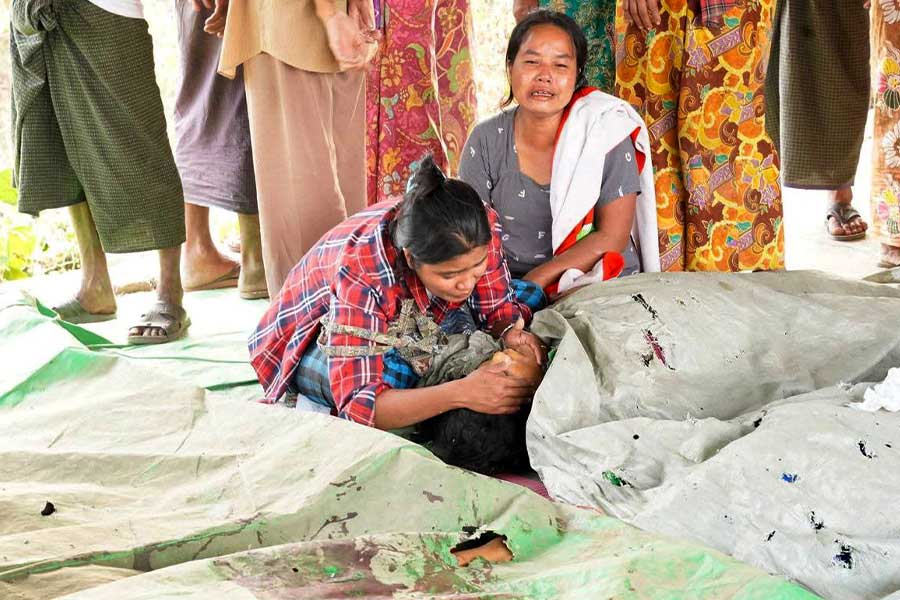
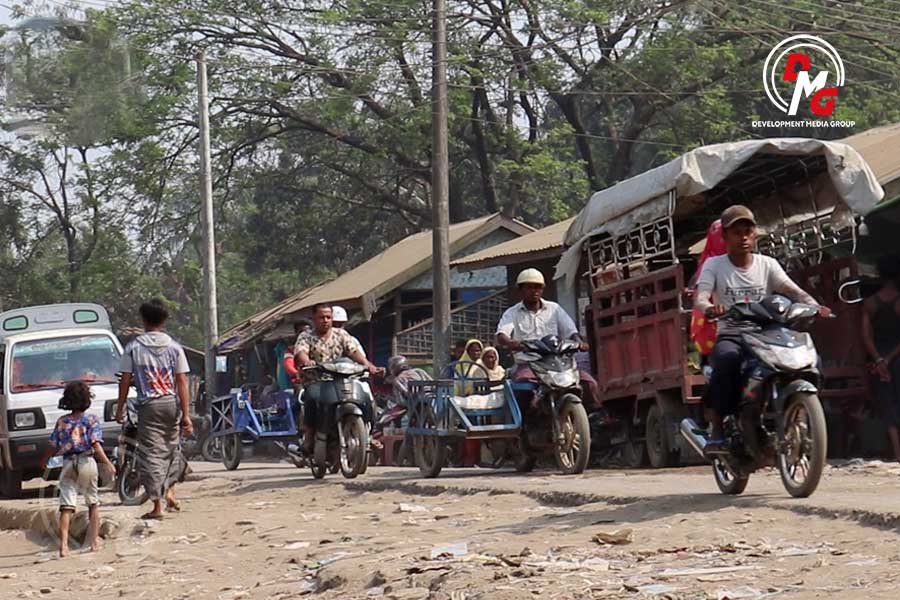
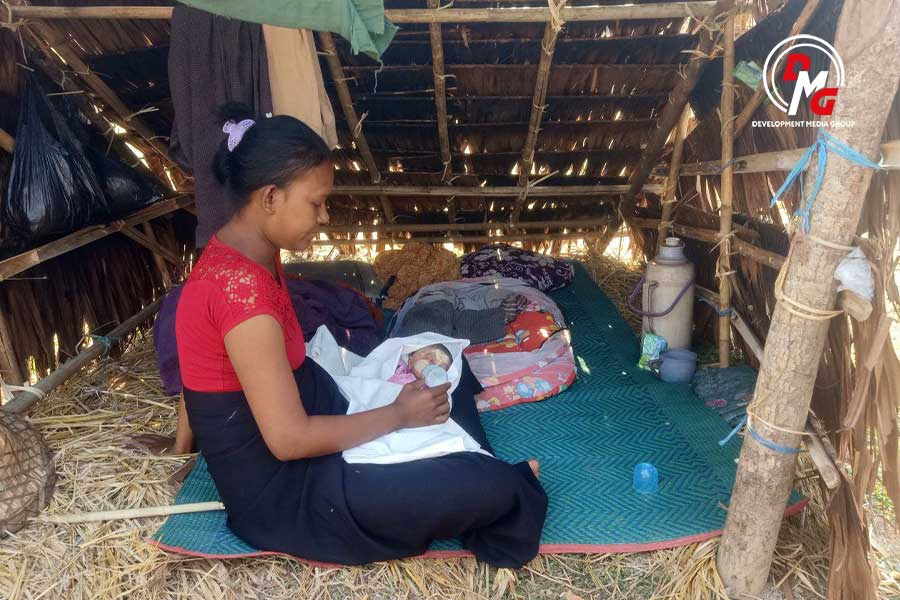
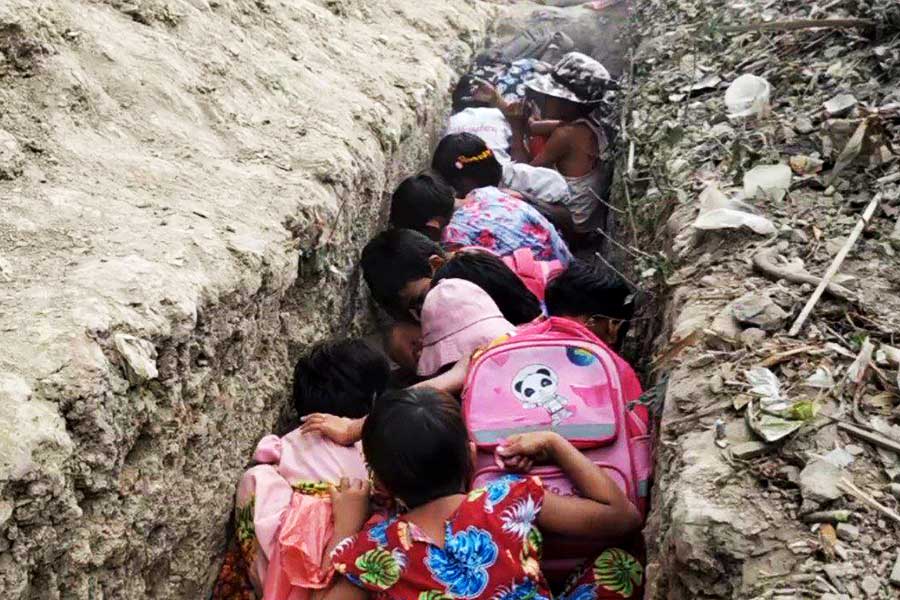








.jpg)